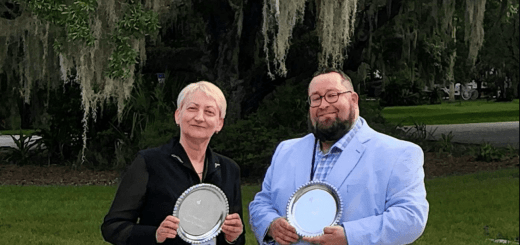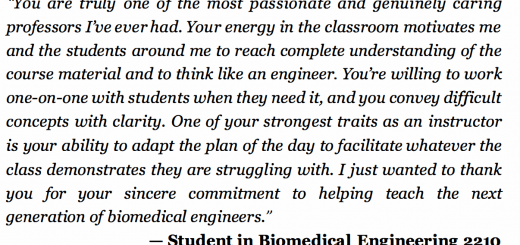World-class Teaching: International Perspectives at Georgia Tech

The World-class Teaching series highlights the work of International Teaching Assistants at Georgia Tech; it is written in collaboration with the Center for Teaching and Learning International Teaching Assistant Liaisons. The ITA Liaisons are graduate teaching assistants who also serve as ITA leaders, advocates, and mentors across campus. Interested in learning more? Read Part 1 and Part 2 of the series.
International teaching assistants (ITAs) enrich teaching and learning at Georgia Tech by bringing global perspectives into the classroom. By sharing their experiences, ITAs help students and faculty engage with different viewpoints and foster a campus community that is diverse, innovative, and inclusive.
We asked CTL’s ITA Liaisons to share how they help prepare Georgia Tech students to thrive in an interconnected world. Their answers offered insight into the vital role ITAs play in shaping graduates who are creative, ethical, innovative, problem-solving, and globally minded. Read below to learn how ITAs support Georgia Tech’s values and beliefs and strategic plan:
We Champion Innovation
Kseniia Shilova, graduate teaching assistant (GTA) and ITA Liaison from the Quantitative Biosciences program, explained that she uses her experience learning math in Russia to help her students better understand the subject. Last summer, she taught a probability and statistics class; when a student came to office hours with questions about integrals, she was able to walk the student through the solutions using the methods she learned in Russia. “He told me the new way was so easy and that he had never seen that approach before,” said Shilova. “I can bring different approaches because I know different schools of math foundations.” Shilova’s understanding of different mathematical approaches allows her students to view problems from multiple angles, leading to more innovative problem-solving and a deeper understanding of the subject matter.
We Lead by Example
Yu (Oli) Wang, GTA and ITA Liaison from the College of Computer Science, explained that her own experience as an international student allows her to support the international students she works as a TA. “As ITAs, I think we better understand why the international students [in our classes] sometimes get very stressed. We can provide insight into how they can address the American classroom and we can share our experiences about when we first came to Tech. We can talk about our stresses and language barriers and how we overcame them.” Wang noted that international students often feel comfortable asking her questions because of their shared similar experiences, and she can use her position as a TA to address some of the worries and challenges they face.
We Cultivate Well-being
Ehsan Asadollahi is an ITA Liaison from the School of Electrical and Computer Engineering who has worked as both a GTA and a graduate research assistant (GRA). Asadollahi used his international perspective to have a positive impact on work-life balance for other GRAs, explaining that the “Georgia Tech holidays are limited to holidays celebrated in the U.S. In one of the research groups, I suggested that we allow students to recognize holidays that they care about and celebrate.” Asadollahi recommended that students may be able to work with their advisors to take breaks on holidays that are meaningful to them. This type of flexible work schedule allows students to honor cultural holidays and can contribute to well-being in the workplace.
We Amplify Impact
Ximena Pizarro-Bore, GTA and ITA Liaison from the School of Public Policy, challenges student perceptions about public policy and public good. “My area [of study] allows for comparison between countries. I have the opportunity to bring to my classes the perspective of different policies and what’s done around the world versus how it is in the U.S. For example, one policy I like to discuss is maternity leave. In Chile, we have six months of paid maternity leave. It’s a right – it’s not a ‘maybe you get it, maybe you don’t.’ It’s your right and it’s the law. In the U.S., that law is zero days. So when students say that the U.S. is a developed country, I like to use that example as a way to say, ‘okay, great, but let’s consider what makes a country a developed country.’” Pizarro-Bore explains that bringing in her international perspective helps students challenge their assumptions and think more deeply about public policy decisions. “It brings up questions and starts a good conversation,” she said. Pizarro-Bore hopes that students will use her examples to find solutions to local and global problems.
We Connect Globally
Ianne Lauder, GTA and ITA Liaison from the Bioinformatics program, helps prepare her students for research positions across the globe. Using her experience as a clinical geneticist in Brazil, she explains the differences in research requirements in different countries. “When you’re doing research that involves human beings, you have to have consent from those people,” said Lauder. “But consent is different in Brazil than it is in the U.S.” Lauder elaborates on a particular project that involved human genome sequencing: “In Brazil, we were expected to have a healthcare professional, such as a medical doctor, provide individual results to each participant. This requirement didn’t exist for the same type of study in the U.S.” By sharing these examples, Lauder sparks conversations about the ethical considerations of research.
Chang Ding, GTA and ITA Liaison from the School of Earth and Atmospheric Sciences, also uses her experiences to expand knowledge and prepare students for worldwide success. When Ding worked as a TA for a geology-related class studying landforms, she realized that her students were only familiar with the types of landforms found in the United States like glaciers, rivers, and valleys. “China has a very special kind [of landform] called Danxia landforms; they’re not found in the U.S. I was able to tell students how it forms and answer questions about it. They were very interested in hearing about different landforms from different countries, and I think that’s quite meaningful.”
We Celebrate Collaboration
In the words of Georgia Tech’s foundational principles, “we enable and celebrate collaboration across disciplines and perspectives, between units and departments, and with other organizations at home and around the world. We value the contributions of all members of our community.” On behalf of CTL and the ITA Liaisons, we hope that the international teaching assistants reading this continue to share their perspectives in and out of the classroom. We encourage faculty to empower ITA voices, as all students benefit from developing a more globally-minded culture. Working together, we can equip Georgia Tech students to make a positive difference in both their communities and the world, “building an exceptional and diverse community of learning, discovery, and creation in an inclusive and collaborative environment.”




